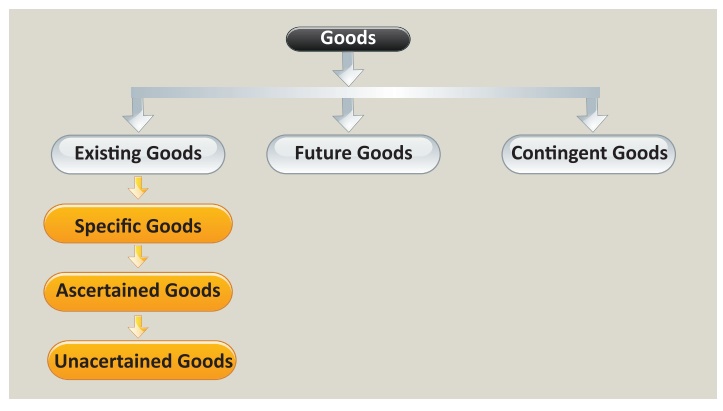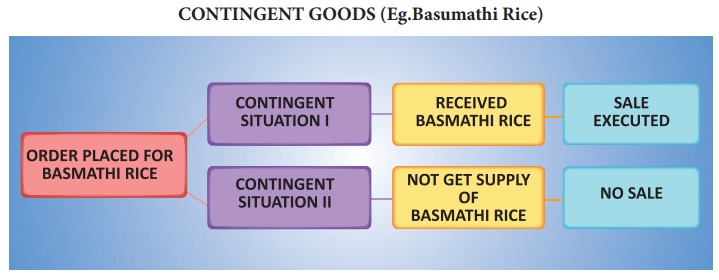The Sale of Goods Act 1930 - Types of Goods | 12th Commerce : Chapter 21 : The Sale of Goods Act 1930
Chapter: 12th Commerce : Chapter 21 : The Sale of Goods Act 1930
Types of Goods
Types of Goods
The term goods mean every kind of movable property other than actionable claim and money. The term actionable claim means debt secured by a mortgage of immovable property, Fixed Deposit Receipt, Dividend Due on Shares, Amount due under LIC policy, Claim for rent which falls due in future etc., The term good includes shares, stocks, growing crops, grass, things attached to the land or forming part of the land agreed to be cut off from the land before sale (eg. trees grown on the land agreed to be sold after harvest), goodwill, copyright, trade mark, patents, water, gas, electricity, power etc., under the contract of sale.

1. Existing Goods
Existing goods are those owned or possessed by the seller at the time of contract of sale. Goods possessed even refer to sale by agents or by pledgers.

The diagram given below exhibits the type of goods covered under the sale of goods act.
Existing goods may be either
(i) Specific Goods
(ii) Ascertained Goods
(iii) Generic or Unascertained Goods
2. Future Goods
These are goods which a seller does not possess at the time of contract of sale but which will be manufactured or produced or acquired by him after entering into the contract of sale agreement. Eg. ‘A’ contractor agrees to supply 100 bags of rice to ‘B’ for giving marriage feast. It is a case of future goods. Similarly where the bus company agrees to buy spare parts from a particular supplier, it is an example of future contract. Future goods represents unascertained goods.
3. Contingent Goods
Contingent goods are the goods, the acquisition of which by the seller depends upon a contingency (an event which may or may not happen). Contingent goods are a part of future goods. Eg.‘A’ agrees to sell a particular painting work, provided he gets from ‘C’. In this case, the painting work represents contingent goods. Similarly a rice merchant agrees to supply 10 bags of basmathi rice from Pakistan if he get supplies. In this case, basmathi rice representing contingent goods may or may not be available to the rice merchant.
Existing Goods
(i) Specific Goods
Specific goods denote goods identified and agreed upon at the time of contract of sale. Foreg. if a buyer selects a particular variety of sareeafter examining several other sarees, the selectedone denotes specific goods.

(ii) Ascertained Goods
The term ‘ascertained goods’ is also used as similar in meaning to specific goods. But this term may even refer to goods which become ascertained subsequent to the formation of the contract.

(iii) Unascertained or Generic Goods
These are goods which are not identified and agreed upon at the time of contract of sale. For eg. A wants to buy a car from a showroom where different models at different prices have been displayed. All these displayed models represents unascertained goods.


Related Topics